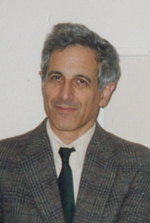 In his memory, the David F. Silbert Summer Fellowship was set up to support short-term research internships for medical, graduate, or other students interested in his area of research. Dr. Silbert’s research focused on genetic biochemical and/or biophysical approaches to the study of specific membrane lipids in signal transduction pathways and in the assembly and function of eukaryotic cell membranes. Since his death from cancer in 1997, a number of biophysical techniques have been developed that address these issues. These techniques include, but are not limited to state–of-the-art fluorescence methods, structural determination using NMR or x-ray methods and computational approaches. All these techniques are directed towards understanding the role of macromolecular interactions in cellular function. It is now clear that membrane lipids and membrane proteins are functionally involved in all aspects of the regulation of cellular processes and that these processes must be studied at the level of macromolecular function.
In his memory, the David F. Silbert Summer Fellowship was set up to support short-term research internships for medical, graduate, or other students interested in his area of research. Dr. Silbert’s research focused on genetic biochemical and/or biophysical approaches to the study of specific membrane lipids in signal transduction pathways and in the assembly and function of eukaryotic cell membranes. Since his death from cancer in 1997, a number of biophysical techniques have been developed that address these issues. These techniques include, but are not limited to state–of-the-art fluorescence methods, structural determination using NMR or x-ray methods and computational approaches. All these techniques are directed towards understanding the role of macromolecular interactions in cellular function. It is now clear that membrane lipids and membrane proteins are functionally involved in all aspects of the regulation of cellular processes and that these processes must be studied at the level of macromolecular function.
Dr. David Silbert studied biochemical sciences at Harvard College, where he was elected to Phi Beta Kappa and graduated magna cum laude in 1958. He received a medical degree from Harvard Medical School in 1962 and moved to St. Louis to complete his internship and residency in ward medicine at Barnes Hospital. Dr. Silbert spent two years as a research associate in the Laboratory of Molecular Biology at the NIH in Bethesda, MD.
Dr. Silbert came to back to Washington University as an American Cancer Society postdoctoral fellow in 1966 and joined the faculty in 1968. He was promoted to associate professor in 1973 and to professor in 1977. Dr. Silbert participated in the graduate programs of Biochemistry, Molecular Biophysics and Molecular Cell Biology. He was devoted to teaching both medical students and graduate students and played a leading role in organizing and presenting the biochemistry curriculum.
How to Apply:
Application forms and informational sheets are available in January of each year from either Marnice Daniels or Chris Mossinghoff in room 100 McDonnell Sci Bldg. Return the completed application by April 1, to:
Dr. Koong-Nah Chung,
Washington University School of Medicine,
Room 100, McDonnell Science Bldg,
Campus Box 8107,
660 S Euclid Ave,
St. Louis, MO 63110
314-362-6844,
chungk(at)msnotes.wustl.edu
Please note: The David F. Silbert Summer Research Fellowship application is the same for the NIH Summer Fellowships and the guidelines would be similar (different stipend amount, etc). Please contact Dr. Chung for more information.
Previous Summer Research Information Sheet
Past Recipients:
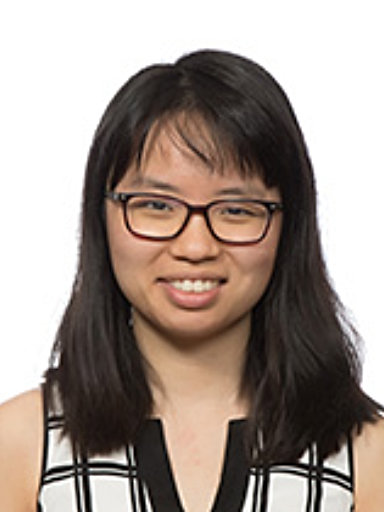 Summer 2018 – Meng’ou (Mary) Zhu worked with Drs. Matthew J Walter and Michael O Alberti on a project entitled “Mutant U2AF1(Q157P) expression alters hematopoiesis in vivo.”
Summer 2018 – Meng’ou (Mary) Zhu worked with Drs. Matthew J Walter and Michael O Alberti on a project entitled “Mutant U2AF1(Q157P) expression alters hematopoiesis in vivo.”
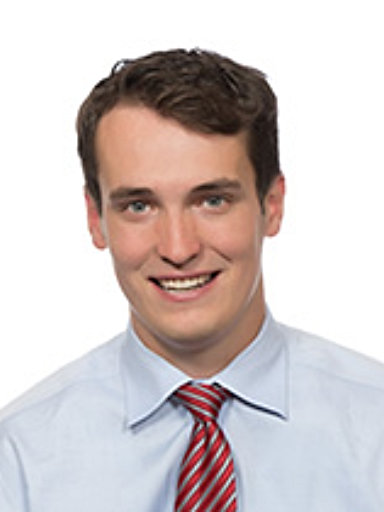 Summer 2018 – John LeClair worked with Drs. Lisa D McKenzie and Milan G Chheda on a project entitled “Characterizing the role of CHD4 in glioblastoma treatment response”.
Summer 2018 – John LeClair worked with Drs. Lisa D McKenzie and Milan G Chheda on a project entitled “Characterizing the role of CHD4 in glioblastoma treatment response”.
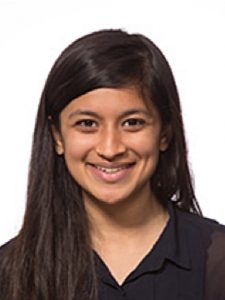 Summer 2017 – Divya Natarajan worked with Drs. Rohit Pappu and Ammon Posey on a project entitled “Toward Rational Design of Huntington’s Disease Therapeutics Using Profilin as a Model of Huntingtin Aggregation Suppression Via Multivalent Interactions”.
Summer 2017 – Divya Natarajan worked with Drs. Rohit Pappu and Ammon Posey on a project entitled “Toward Rational Design of Huntington’s Disease Therapeutics Using Profilin as a Model of Huntingtin Aggregation Suppression Via Multivalent Interactions”.
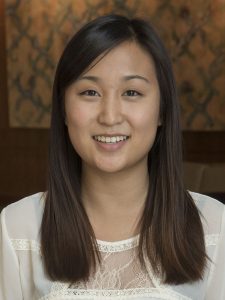 Summer 2016 – Margery Gang worked with Drs. Matthew Christopher and Timothy Ley’s laboratories on a project entitled “WT1 loss-of-function mutations in Acute Myeloid Leukemia”.
Summer 2016 – Margery Gang worked with Drs. Matthew Christopher and Timothy Ley’s laboratories on a project entitled “WT1 loss-of-function mutations in Acute Myeloid Leukemia”.
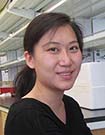 Summer 2015 – Brooke Liang worked in Dr. Russell Pachynski’s laboratory on a project entitled “Evaluation of the Leukocyte Chemoattractant Receptor CMKLR1 on T Cells”.
Summer 2015 – Brooke Liang worked in Dr. Russell Pachynski’s laboratory on a project entitled “Evaluation of the Leukocyte Chemoattractant Receptor CMKLR1 on T Cells”.
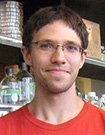 Summer 2015 – Angus Toland worked in Dr. Doug Chalker’s laboratory on a project entitled “A Conserved Amino Acid Motif in Lia3 is Required for Binding to G Quadruplex DNA”.
Summer 2015 – Angus Toland worked in Dr. Doug Chalker’s laboratory on a project entitled “A Conserved Amino Acid Motif in Lia3 is Required for Binding to G Quadruplex DNA”.
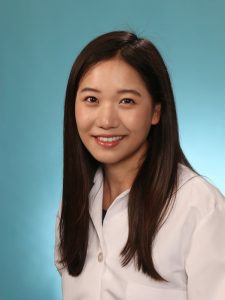 Summer 2014 – Diane Aum worked in Dr. Albert H. Kim’s laboratory on a project entitled “The Effects of NAMPT Inhibition on Cancer Stem Cells of Glioblastoma Multiforme”.
Summer 2014 – Diane Aum worked in Dr. Albert H. Kim’s laboratory on a project entitled “The Effects of NAMPT Inhibition on Cancer Stem Cells of Glioblastoma Multiforme”.
 Summer 2014 – James Zou worked in Dr. Marco Colonna’s laboratory on a project entitled “Analysis of the Role of IL-26 in Human Mucosal Immunity Using Monoclonal Antibodies Generated Against IL-26”.
Summer 2014 – James Zou worked in Dr. Marco Colonna’s laboratory on a project entitled “Analysis of the Role of IL-26 in Human Mucosal Immunity Using Monoclonal Antibodies Generated Against IL-26”.
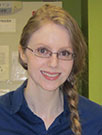 Summer 2013 – Kara Ramsey worked in Dr. Randall Bateman’s laboratory on a project entitled “Detection of AB in the Blood”.
Summer 2013 – Kara Ramsey worked in Dr. Randall Bateman’s laboratory on a project entitled “Detection of AB in the Blood”.
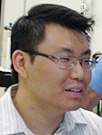 Summer 2013 – Qi Xiao worked in Dr. Michael Gross’ laboratory on a project entitled “Fast Photochemical Oxidation of Proteins Footprinting of Intrinsically Disordered Proteins”.
Summer 2013 – Qi Xiao worked in Dr. Michael Gross’ laboratory on a project entitled “Fast Photochemical Oxidation of Proteins Footprinting of Intrinsically Disordered Proteins”.
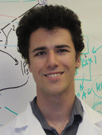 Summer 2012 – Adam Aronson worked in Dr. Matthew Ellis’ laboratory on a project entitled “Characterizing Her3 Receptor-Tyrosine Kinase Mutations in Breast Cancer”.
Summer 2012 – Adam Aronson worked in Dr. Matthew Ellis’ laboratory on a project entitled “Characterizing Her3 Receptor-Tyrosine Kinase Mutations in Breast Cancer”.
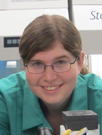 Summer 2012 – Natalie Macaruso worked in Dr. Jason Weber’s laboratory on a project entitled “Role of Nucleolar Proteins in Gliomagenesis”.
Summer 2012 – Natalie Macaruso worked in Dr. Jason Weber’s laboratory on a project entitled “Role of Nucleolar Proteins in Gliomagenesis”.
 Summer 2011 – Sara Chen worked in Dr. Katherine Weilbaecher’s laboratory. They worked on the project entitled “Hedgehog Signaling Inhibition Blocks Growth of Resistant Tumors Through Effects on Tumor Microenvironment”.
Summer 2011 – Sara Chen worked in Dr. Katherine Weilbaecher’s laboratory. They worked on the project entitled “Hedgehog Signaling Inhibition Blocks Growth of Resistant Tumors Through Effects on Tumor Microenvironment”.
 Summer 2011 – Vaishnavi Purusothaman worked in Dr. Robyn Klein’s laboratory. They worked on the project entitled “Role of Chemokines in the Pathogenesis of Multiple Sclerosis”.
Summer 2011 – Vaishnavi Purusothaman worked in Dr. Robyn Klein’s laboratory. They worked on the project entitled “Role of Chemokines in the Pathogenesis of Multiple Sclerosis”.
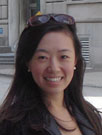 Summer 2010 – June Hu worked in Dr. Rafael Kopan’s laboratory. They worked on the project entitled “Humidity or Osmolarity Gradients as a trigger of TSLP Secretion”.
Summer 2010 – June Hu worked in Dr. Rafael Kopan’s laboratory. They worked on the project entitled “Humidity or Osmolarity Gradients as a trigger of TSLP Secretion”.
 Summer 2009 – Nathaniel Ginder worked in the Dr. Colin Nichols’ laboratory. They worked on potassium channels which are critical regulators of excitability in all cells and are major therapeutic targets.
Summer 2009 – Nathaniel Ginder worked in the Dr. Colin Nichols’ laboratory. They worked on potassium channels which are critical regulators of excitability in all cells and are major therapeutic targets.
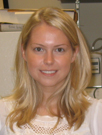 Summer 2008 – Agnieszka Monika Milczarek worked in Dr. Sheila Stewart’s laboratory. They worked on uncovering how age contributes to the development of cancer.
Summer 2008 – Agnieszka Monika Milczarek worked in Dr. Sheila Stewart’s laboratory. They worked on uncovering how age contributes to the development of cancer.
